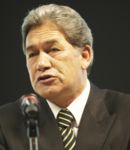New Zealand general election, 2002
|
|
|||||||||||||||||||||||||||||||||||||||||||||||||||||||||||||||||||||||||||||||||||||||||||||||||||||||||||||||||||||||||||||||||||||||||||||
|---|---|---|---|---|---|---|---|---|---|---|---|---|---|---|---|---|---|---|---|---|---|---|---|---|---|---|---|---|---|---|---|---|---|---|---|---|---|---|---|---|---|---|---|---|---|---|---|---|---|---|---|---|---|---|---|---|---|---|---|---|---|---|---|---|---|---|---|---|---|---|---|---|---|---|---|---|---|---|---|---|---|---|---|---|---|---|---|---|---|---|---|---|---|---|---|---|---|---|---|---|---|---|---|---|---|---|---|---|---|---|---|---|---|---|---|---|---|---|---|---|---|---|---|---|---|---|---|---|---|---|---|---|---|---|---|---|---|---|---|---|---|
|
|||||||||||||||||||||||||||||||||||||||||||||||||||||||||||||||||||||||||||||||||||||||||||||||||||||||||||||||||||||||||||||||||||||||||||||
|
|
|||||||||||||||||||||||||||||||||||||||||||||||||||||||||||||||||||||||||||||||||||||||||||||||||||||||||||||||||||||||||||||||||||||||||||||
|
120 seats in the New Zealand House of Representatives 61 seats needed for a majority |
|||||||||||||||||||||||||||||||||||||||||||||||||||||||||||||||||||||||||||||||||||||||||||||||||||||||||||||||||||||||||||||||||||||||||||||
| Turnout | 2,055,404 (76.98%) |
||||||||||||||||||||||||||||||||||||||||||||||||||||||||||||||||||||||||||||||||||||||||||||||||||||||||||||||||||||||||||||||||||||||||||||
|
|||||||||||||||||||||||||||||||||||||||||||||||||||||||||||||||||||||||||||||||||||||||||||||||||||||||||||||||||||||||||||||||||||||||||||||
|
|||||||||||||||||||||||||||||||||||||||||||||||||||||||||||||||||||||||||||||||||||||||||||||||||||||||||||||||||||||||||||||||||||||||||||||
The 2002 New Zealand general election was held on 27 July 2002 to determine the composition of the 47th New Zealand Parliament. It saw the reelection of Helen Clark's Labour Party government, as well as the worst-ever performance by the opposition National Party.
Arguably the most controversial issue in the election campaign was the end of a moratorium on genetic engineering, strongly opposed by the Green Party. Some commentators have claimed that the tension between Labour and the Greens on this issue was a more notable part of the campaign than any tension between Labour and its traditional right-wing opponents. The release of Nicky Hager's book Seeds of Distrust prior to the election also sparked much debate. The book examined how the government handled the contamination of a shipment of imported corn with genetically modified seeds. Helen Clark called the Greens "goths and anarcho-feminists" during the campaign.
On 12 June the government announced that the country would have a general election on 27 July. This was several months earlier than was required, a fact which caused considerable comment. The Prime Minister, Helen Clark, claimed that an early poll was necessary due to the collapse of her junior coalition partner, the Alliance. Critics, however, claimed that Clark could have continued to govern, and that the early election was called to take advantage of Labour's strong position in the polls. Some commentators believe that a mixture of these factors was responsible.
Before the election, the Labour Party held 49 seats in parliament. It governed in coalition with the smaller (and more left-wing) Alliance, which had 10 seats. It also relied on support from the Greens, but this was a largely informal arrangement, and the Greens were not a part of the administration itself. Opposing Labour were the National Party (centre-right), New Zealand First (radical centrist and nationalist), ACT New Zealand (strongly supportive of the free market), and United Future (centrist). Many opinion polls, indicated that Labour was popular enough to conceivably win an absolute majority, leaving it able to govern without the support of smaller parties. Labour's dominance over National was such that for many people, the question was not whether Labour would win, but whether Labour would receive the absolute majority it sought.
...
Wikipedia









